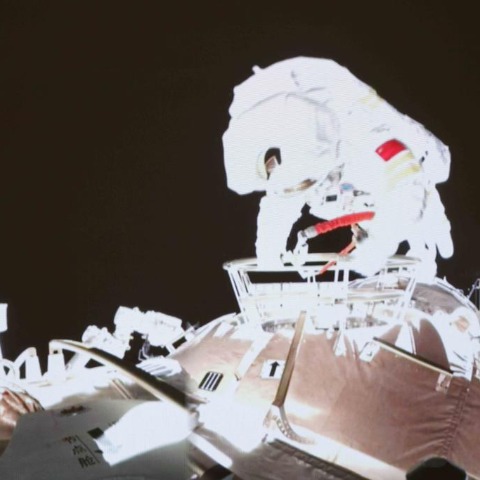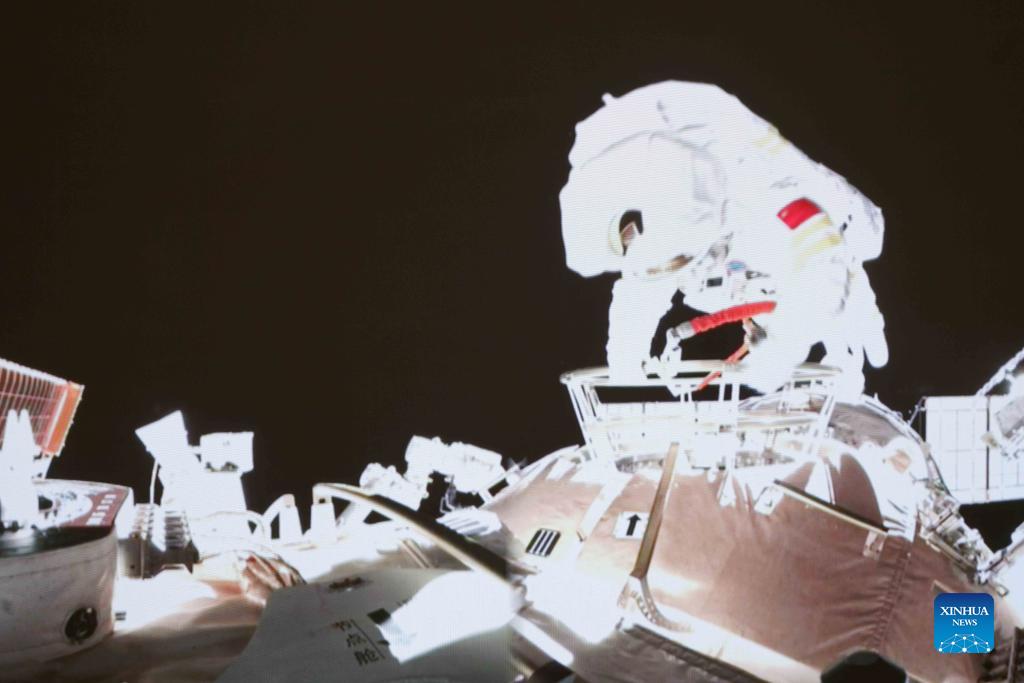




Senior Colonel Wang Yaping, 41, became China's first female spacewalker on Sunday evening when she took part in the Shenzhou XIII mission's first extravehicular activity with mission commander Major General Zhai Zhigang.
The extravehicular operation began at 6:51 pm when Zhai opened a hatch. By 8:28 pm, Zhai and Wang had exited the Tiangong space station, the China Manned Space Agency said in a statement.
By midnight, they had mounted new components on the station's robotic arm and used it to practice extravehicular maneuvers and rescue operations, the agency said, noting that Senior Colonel Ye Guangfu had remained inside the station to monitor and support the spacewalk, which was scheduled to last six hours.
The spacewalk was expected to further verify the robotic arm's capabilities and its compatibility with the needs of astronauts, examine the safety and performance of support devices in an extravehicular task and test the functions of a new type of extravehicular suit, the agency said.
It said the Shenzhou XIII crew will carry out one to two more spacewalks in the coming months.
A native of Shandong province and mother of a 5-year-old girl, Wang joined the People's Liberation Army Air Force in August 1997 and served as a deputy squadron commander before joining the second group of astronauts at the PLA Astronaut Division in May 2010.
In March 2012, she was part of the backup crew for the Shenzhou IX mission, and in June 2013, she took part in the Shenzhou X mission, which lasted nearly 15 days. She is the second Chinese woman to have flown in space.
During the Shenzhou X flight, Wang gave China's first space-based lecture inside the Tiangong I experimental module to more than 60 million Chinese students at about 80,000 schools across the country.
She was selected for Shenzhou XIII in December 2019 and was also a member of the backup crew for the Shenzhou XII mission.
Zhai, 55, was the first Chinese astronaut to conduct a spacewalk-he floated out of the Shenzhou VII spacecraft for about 15 minutes during its three-day mission in September 2008.
That short adventure made China the third nation in the world, following the former Soviet Union and the United States, capable of independently conducting a spacewalk.
The Shenzhou XIII mission was launched on Oct 16 by a Long March 2F carrier rocket that blasted off from the Jiuquan Satellite Launch Center in northwestern China's Gobi Desert, with the crew soon entering the Tiangong space station, whose name means Heavenly Palace. They are scheduled to spend six months working in the station, making it China's longest space mission.
Before the spacewalk, they had moved living and work materials from the Tianzhou 2 and 3 cargo spaceships to the station's core module, named Tianhe, or Harmony of Heavens, tested their extravehicular suits, and conducted training on robotic arm control and medical aid, according to the manned space agency.
Their peers in the Shenzhou XII mission, which lasted three months and concluded in mid-September, performed two spacewalks.
If you have any problems with this article, please contact us at app@chinadaily.com.cn and we'll immediately get back to you.